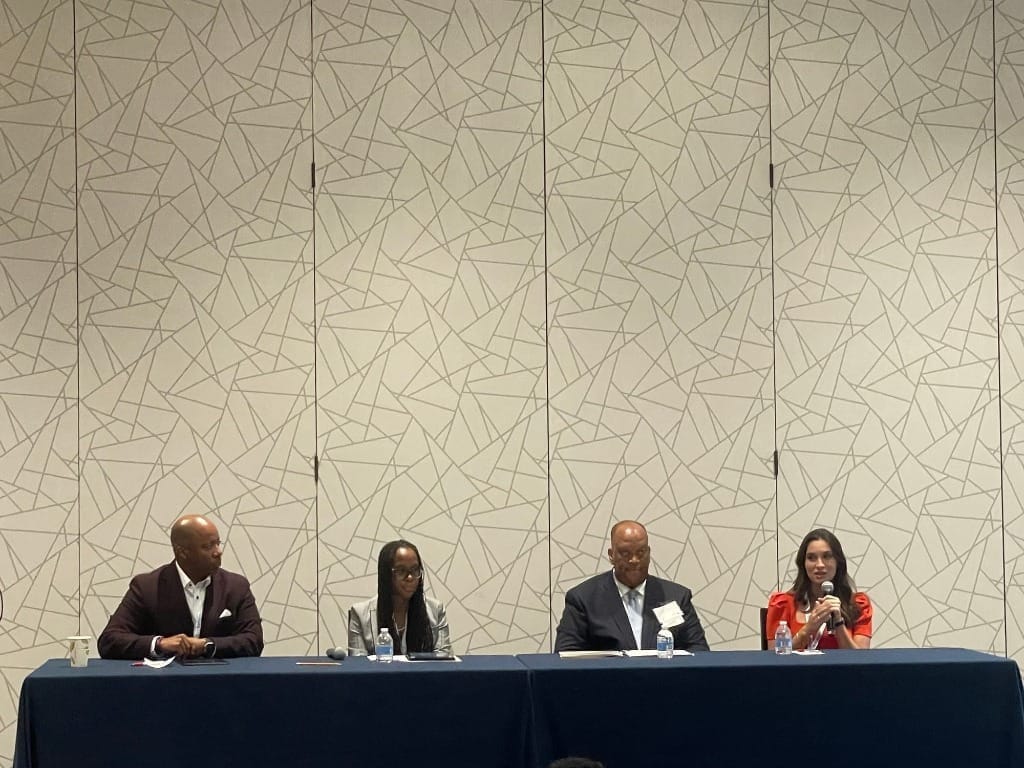State Broadband Officers Prioritize Community in BEAD Deployment
Officials said that community outreach is essential to digital equity

Officials said that community outreach is essential to digital equity

ARLINGTON, Va., Oct. 3, 2024 – A group of state broadband officials said on Thursday that placing communities in the driver’s seat is crucial to successfully implementing the Biden Administration’s $42.45 billion Broadband Equity, Access, and Deployment Program.
“[We] can’t operate BEAD without engaging our communities,” said Washington D.C. Broadband Office Director Kevin Hughes on a broadband deployment conference panel that included Virginia Department of Housing and Community Development Program Manager Tamara Holmes.
Holmes noted the importance of community engagement in the deployment of BEAD funding, stressing the need to “pull in regional partners to [successfully] develop these plans.”
Edyn Rolls, Director of Broadband Strategy in the Oklahoma Broadband Office, also noted the importance of community involvement in BEAD deployment. Specifically, she noted that, in the two years since the founding of the Oklahoma Broadband Office, it has met with 38 of the state’s 39 tribal entities to understand which localities need expanded broadband access the most.
“If it’s a ‘maybe’ that there is service [in a specific location], there is not service there,” said Rolls, stating the importance of locality engagement when planning for BEAD deployment.
The officials were speaking at the annual AnchorNets conference (Oct. 2-4) in Arlington, Va., hosted by the Schools Health & Libraries Broadband Coalition. Panel moderator was Scott Woods, President of Public-Private Partnerships at Ready.net.
The panel also noted the importance of non-deployment, or leftover, funds in increasing digital equity.
Hughes mentioned that non-deployment funds were an essential component in increasing access to digital infrastructure within communities, citing a Washington D.C. plan to deploy a mobile tech fleet to develop digital literacy among district residents.

The ambitious undertaking is supported by a $20 million grant awarded under the 2021 Tribal Broadband Connectivity Program.

Satellite companies want easier access, while carriers say that could upend licenses they purchased.

The agency tapped Tricia J. Paoletta and Matthew Plaster as senior advisors

The fire chiefs voiced strong support in May 2025 for NextNav’s new technology, before shifting gears just last month.
Member discussion